-
Singers4.5
-
Conductor/Orchestra3
-
Staging3.5
Opera’s newest power couple – so Etienne Dupuis and Nicole Car have been called, and so they sounded Saturday night in Tchaikovsky’s Eugene Onegin. But as impressive as they were in the principal roles, the Montreal-born baritone and his Australian soprano better half did not constitute the sum of show. This was one of the best-cast and least-tampered-with Opéra de Montréal presentations in recent memory.
What you missed
Fans of mezzo-sopranos had an array of firm sonorities to choose from in Christianne Bélanger as Larina, Stefania Toczyska as the nurse and Carolyn Sproule as Olga, who must seem the gayer of the two sisters with the darker voice. All acted well. Tenor Owen McCausland believably embodied the frustrated Lensky and (after adapting to his surroundings in Act 1) sang with pathos and ringing tone. Who among us can hear the great aria of Act 2, lamenting the sudden and catastrophic loss of happiness, without shedding (or suppressing) a tear?
Bass Denis Sedov, the lone Russian in the cast, portrayed Prince Gremin with a gravelly voice that seemed of a certain age – quite in keeping with the character. Adding a limp to the old general’s deportment was an inspired touch. Spencer Britten, a light tenor from the Atelier lyrique, performed a little magic show as Monsieur Triquet. The OdM chorus as prepared by Claude Webster was hearty. Given the accomplishment of the formal dancing, it was surprising not to see a choreography credit in the program.
But let us return to the couple of the moment. Car was admirable in every way as Tatyana. It said something about the intensity of her tone and truth of her acting style that we forgot during the Letter Scene that we were in big, cavernous Salle Wilfrid Pelletier of Place des Arts. It was presumably the size of that stage that induced the director (Stephanie Havey reviving the conception of Tomer Zvulun) to let the soprano use so much of it, even to the extent of neglecting somewhat the letter she is supposed to be writing. At one point Car stood on her bed. Happily, she did not start to jump. At any rate, she received a huge ovation.
The title character is a tougher nut to crack, cold-hearted at the beginning, emotive and confessional as the opera progresses. Dupuis applied a virile and vibrant tone to all of Onegin’s music. I wonder if there is a way of conveying the hidden humanity of this mysterious fellow in his ill-considered initial rejection of Tatyana. Another question is whether Dupuis – in his vocal prime at 40 – might have been made to appear closer in age to the young man Tchaikovsky (and the novelist Alexander Pushkin) had in mind. There was certainly nothing of the “dandy” about this Onegin.
Nor was there any doubt of his confident stage presence or his chemistry with Car. To what extent marriage in reality has a bearing on performance is too great a subject for this column, but relations on stage were certainly warm. Despite the vehemence of Tchaikovsky’s music in the final scene, Onegin probably should not land a smacker on Tatania’s lips when he bursts in. We are in St. Petersburg, not Palermo.
All the same, the crowd responded positively to the verismo approach and appreciated the period production from the Lyric Opera of Kansas City. Few designs these days are as faithful to the source. The duel at dawn even includes the stipulated mill. (OK, a windmill rather than a watermill, but still.) Most of the colour resided in the painterly backdrops by Erhard Rom and the unpredictable lighting of Claude Accolas. If structural elements were relatively grey, they dealt honourably with the need (inevitable in a cost-conscious era) of conveying different scenes, indoor and outdoor, within the context of a single adaptable set.
Gripes
Stage movement was realistic – even Onegin sustains an injury in the duel – and directorial point-making generally aligned itself to points also made by the libretto and score. Unfortunately, the directors could not resist deploying a few clichés of modern stagecraft, notably the use of silent senior-citizen Doppelgängers who view their younger selves with sadness. All this does is drain the plot of its natural suspense. And there was surely no need to turn the chorus into a mob, abstractly persecuting Onegin and pointing at the crowd. We also are hypocrites! Intended to involve the audience, this kind of stunt usually has the opposite effect. Freezing the chorus to concentrate attention on a solo or ensemble also strikes me as a well-worn technique.
To say this Onegin is not perfect is not to deny its many merits. Touches of stiffness will evaporate in subsequent performances. We can have faith also that the Orchestre Métropolitain strings will get their act together while the winds uphold their already high standards. A conductor of big gestures and no baton, Guillaume Tourniaire manipulated tempos to dramatic effect in the Letter Scene. The polonaise, on the other hand, was brittle and fast. Perhaps his conception needed another rehearsal to crystalize.
The production is dedicated to the memory of OdM co-founder Joseph Rouleau. How fitting that it is such a good one.
The Audience corner is a section designed to give a voice to spectators. If you attend a concert and want to share your impressions with our readers and us please send them to [email protected]
Opéra de Montréal’s production of Tchaikovsky’s Eugene Onegin opened on Sept. 14 and continues Sept. 17, 19 and 22 (matinee). www.operademontreal.com. Tickets also available from the LSM Boutique.
Read Also:
Wah Keung Chan’s interview “Etienne Dupuis and Nicole Car : Opera’s New Power Couple”


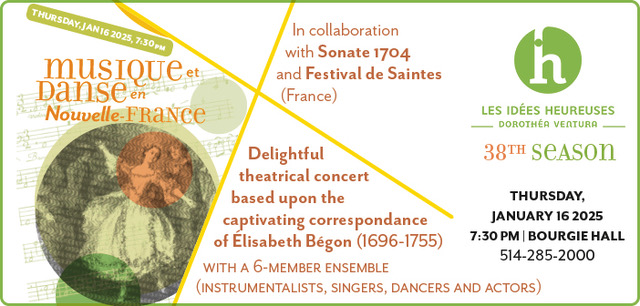








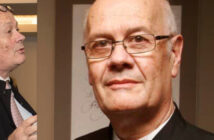
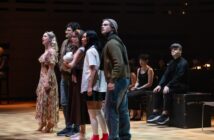

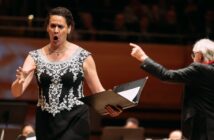




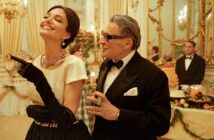

1 Comment
I very much agree with your statement that ”This was one of the best-cast and least-tampered-with Opéra de Montréal presentations in recent memory.” It displeases me (and lots of opera fans) when the production tempers with the mood and/or time period of an opera and disregards staging instructions by the composer. I like fidelity to the partition, to the libretto and to the composer. This was indeed a remarkable production and a very solid cast. I consider that attempting to modernize an opera at all costs is an error.